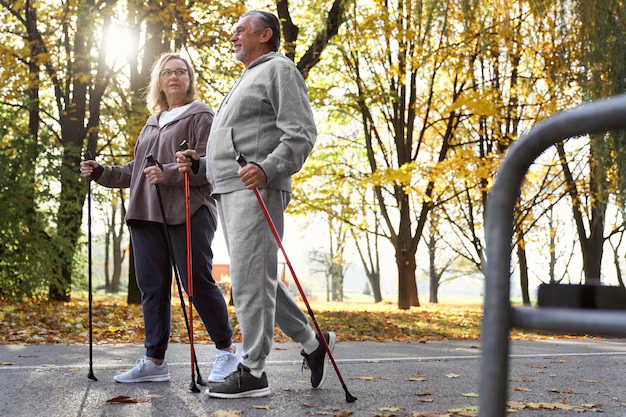Navigating Freedom: A Thorough Guide to Mobility Scooters for Seniors
Aging gracefully without relinquishing independence is a desire shared by many seniors. Mobility scooters often offer a lifeline to freedom, allowing users to navigate their environment with ease and confidence. This comprehensive guide will explore how seniors can master mobility scooters, taking a closer look at the factors that make them indispensable, from choosing the right model to understanding practical safety tips.
Why Mobility Scooters Matter
Maintaining independence is a key element of a fulfilling senior life. Mobility scooters empower users to live life on their own terms by enhancing accessibility. Whether it's a trip to the grocery store, visiting loved ones, or exploring the local park, these scooters break down barriers that physical limitations might present.
Enhancing Quality of Life
Mobility scooters do more than just provide transportation. They open doors to social interaction and engagement that are vital for mental health and well-being.
- Social Engagement: Joining community gatherings and partaking in outings helps build relationships.
- Mental Health: Reduced feelings of isolation can improve mental health and cognitive function.
- Physical Activity: Encouragement to leave the house may lead to participating in low-impact activities.
Identifying the Right Fit
Selecting the right mobility scooter can vastly enhance usability and satisfaction. Key considerations include the user's specific mobility challenges, the terrain where the scooter will be primarily used, and personal preferences.
Understanding Different Types of Mobility Scooters
Mobility scooters come in various forms, each tailored to different needs and environments. Understanding these options can help in making an informed choice.
Three-Wheel Scooters
Pros:
- Tighter Turning Radius: Ideal for indoor use or navigating crowded areas.
- Maneuverability: Easier to handle due to a smaller frame.
Cons:
- Stability Concerns: May feel less stable than other options, especially on uneven terrain.
Four-Wheel Scooters
Pros:
- Stability: Offers better balance, suitable for outdoor use.
- Durability: Generally more robust, handling a variety of surfaces.
Cons:
- Larger Turn Radius: Requires more space to maneuver.
Heavy-Duty Scooters
Designed for users who need a higher weight capacity or frequent use in rugged environments, these scooters offer enhanced power and durability but at the cost of portability.
Travel Scooters
Perfect for those constantly on the move, travel scooters are lightweight and foldable, making them easy to transport.
Key Features to Consider
When shopping for a mobility scooter, key features often make a significant difference in performance and convenience.
Battery Life and Range
🔋 Tip: Evaluate how far you plan to travel regularly and assess the scooter's battery range accordingly. Understanding recharging routines can also help prevent unexpected limitations.
Comfort and Ergonomics
Tips:
- Adjustable Seats and Armrests: Ensures a comfortable ride.
- Floor Space: Allows for easy movement of feet and legs.
Safety Features
- Lights and Signals: Essential for increased visibility.
- Anti-Tip Wheels: Prevents accidental tipping on inclines.
Practical Tips for Safe Use
Using a mobility scooter involves more than just technical knowledge. Safety is paramount to ensure an enjoyable, stress-free experience.
Safety Check Routine
- Pre-Ride Inspection: Regularly check tires, battery, and controls.
- Weather Conditions: Plan your trips avoiding bad weather or uneven pathways.
Maneuvering Through Various Terrains
Understanding the limits of your scooter in different environments is crucial. Here are some quick pointers:
- Smooth Indoor Surfaces: Ideal for three-wheel or small-sized scooters.
- Paved Roads and Outdoors: Require more robust models like four-wheel or heavy-duty scooters.
- Uneven Terrains: Engage speed controls and anti-tip features for safety.
Regulatory and Environmental Concerns
Be aware of where scooters are allowed or prohibited ensuring compliance with local regulations. Some areas may have specific lanes or paths designated for mobility scooters.
Additional Accessories and Modifications
To further enhance the experience, consider additional accessories and modifications specifically tailored for personal needs:
- Canopies and Weather Protectors: Provide coverage and comfort during travel.
- Storage Solutions: Baskets and compartments can hold personal items safely.
Summary: Key Takeaways for Mastering Mobility 🚀
Here's a condensed overview of the key aspects when selecting and using mobility scooters for seniors:
- Identify Needs: Start by assessing usage frequency, environments, and specific mobility requirements.
- Types and Models: Choose between three-wheel, four-wheel, travel, or heavy-duty scooters based on terrain.
- Key Features: Consider battery range, comfort, and safety features for an optimal experience.
- Safety First: Conduct regular checks and understand terrain limitations.
- Accessories Matter: Choose modifications that enhance convenience and user satisfaction.
In conclusion, choosing the right mobility scooter is fundamentally about understanding personal needs and making informed decisions to ensure safety, comfort, and independence. Navigating life with a mobility scooter can significantly enhance the quality of life for seniors, ensuring that the journey remains as enjoyable as the destination.

Related Topics
- A Comprehensive Guide For Seniors: Embracing Creativity Through Art And Craft Classes
- A Comprehensive Guide To Estate Planning Services For Seniors
- A Comprehensive Guide To Home Security Systems For Seniors
- A Comprehensive Guide To Nutritional Counseling For Seniors
- A Comprehensive Guide To Recreational Activities In Senior Centers
- A Nourishing Guide To Liquid Nutrition Supplements For Seniors
- A Resourceful Guide To Senior-Friendly Meal Plans
- An Expansive Guide To Home Modification Services For Seniors: Starting With Grab Bars And Beyond
- An Informative Guide: Captioned Telephones For The Hard-of-Hearing
- Boosting Your Brainpower: Engaging Activities To Enhance Cognitive Function In Seniors
